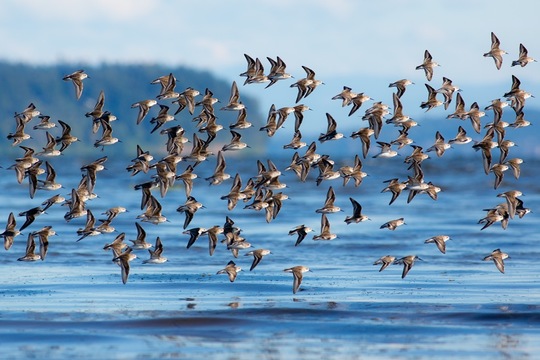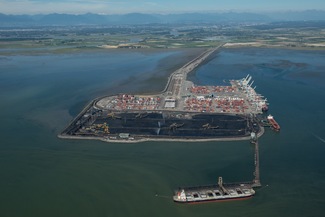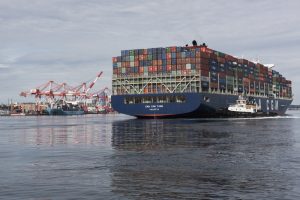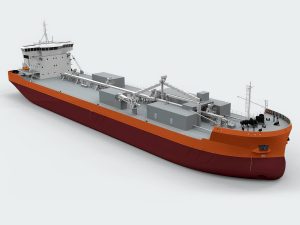By Leo Ryan, Editor
A federal Review Panel report assessing whether to allow the construction of a planned new container terminal at the Port of Vancouver at Roberts Bank has acknowledged its potential competitive benefits for Canadian marine shipping markets and regional employment but has also underscored “significant adverse” effects on the nearby wetlands, fish habitat and migratory birds as well as on the quality of life of local populations and cultural heritage of Indigenous groups.
Proposed by the Vancouver Fraser Port Authority to meet future container cargo demands, the Roberts Bank Terminal 2 Project at Delta, known as RBT2, has been undergoing an environmental assessment by a Review Panel appointed in 2016 by the Federal Minister of Environment and Climate Change. Providing capacity for an additional 2.4 million TEUs annually by 2025, it would require the conversion of177 hectares of intertidal and subtidal habitat on Roberts Bank to build a new three-berth terminal, expand an existing causeway and enlarge an existing tug basin. It would be located immediately adjacent to Tsawwassen First Nation lands.
The Panel made 71 recommendations to mitigate impacts on wetlands, aquatic species and other sectors, including the development of a marine mammal management plan and the establishment of an Indigenous advisory committee.
Among its comments, the Panel said :”While the Panel understands there would be relatively few ship movements associated with the Project, each ship travelling through the shipping lanes causes an incremental effect on the ability of Indigenous groups to access sites where they conduct cultural activities.”
The Panel further declares: “The Project would result in a residual adverse effect on daytime and nighttime visual resources and on outdoor recreation as well as a significant cumulative effect” during both construction and operations.
The Panel notes that “several participants have highlighted that the Salish Sea is already highly noisy and that there should be, at a minimum, no future net gain in underwater noise.”






